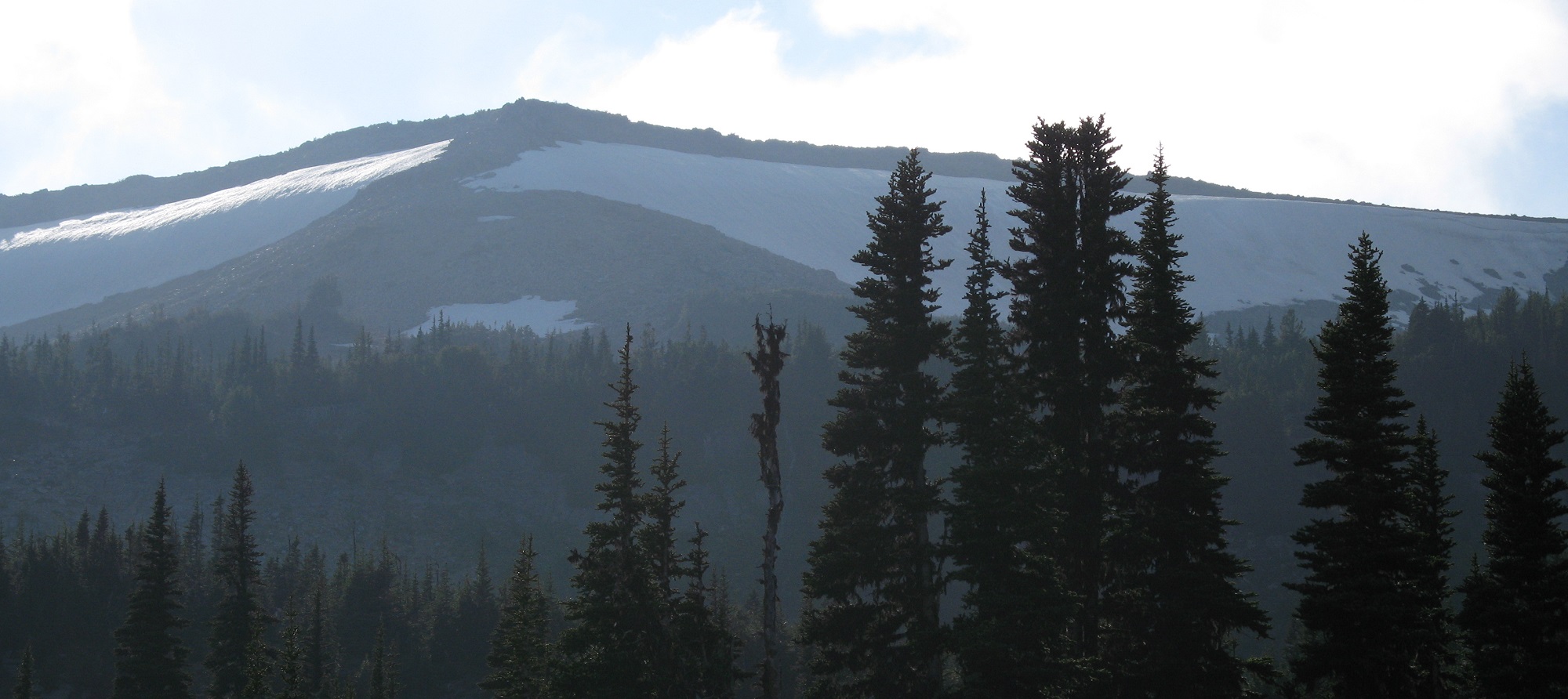If you live west of The Cascades, you may take our forests, rivers and inlets for granted. It is easy to lose track of the debts incurred through our history. A civilization can take one of two paths—we either increase the ecological wealth of the earth, or we deplete it. Every civilization to date has done the latter.
Our Cascadian Rim has been cloaked in cool maritime rainforest since time before memory—big trees, cold streams, and salmon. There are only six such landscapes on the face of the earth.
 Our Cascadian Rim has been cloaked in cool maritime rainforest since time before memory—big trees, elk, beaver, cold streams, and salmon. There are only six such landscapes on the face of the earth. Over six generations we killed beaver, cut ancient forests, drained vast wetlands, armored riverbanks, dried up watersheds, decimated game, poisoned waters, and brought wild salmon to the edge of extinction. We cashed in our heritage and spent it. We sold pelts, sold logs, and sold salmon and bought into hydropower, shipbuilding, smelting, and aerospace. Now our port cities are engines of global trade with glass towers full of artificial intelligence and genetic technologies. Every decade, another quarter-million people come to graze our green pastures.
Our Cascadian Rim has been cloaked in cool maritime rainforest since time before memory—big trees, elk, beaver, cold streams, and salmon. There are only six such landscapes on the face of the earth. Over six generations we killed beaver, cut ancient forests, drained vast wetlands, armored riverbanks, dried up watersheds, decimated game, poisoned waters, and brought wild salmon to the edge of extinction. We cashed in our heritage and spent it. We sold pelts, sold logs, and sold salmon and bought into hydropower, shipbuilding, smelting, and aerospace. Now our port cities are engines of global trade with glass towers full of artificial intelligence and genetic technologies. Every decade, another quarter-million people come to graze our green pastures.
Can we build a future without healthy land at its root? What fragile digital tower will we build if we neglect water, soil, trees and fish?
 Can we build a future without healthy land at its root? What fragile digital tower will we build if we neglect water, soil, trees and fish? Our children won’t know the natural birthplace of our culture. We monitor the rising seas, measure our greenhouse gases and fight over water. The future promises floods, droughts, and burning forests. At the edge of each growing city, the forests, farmlands and watersheds are being cut, scraped and drained at a pace defined by our gross domestic product—you can only really notice the change if you stay in one place. We know the pattern but are unable to buy or sell a solution.
Can we build a future without healthy land at its root? What fragile digital tower will we build if we neglect water, soil, trees and fish? Our children won’t know the natural birthplace of our culture. We monitor the rising seas, measure our greenhouse gases and fight over water. The future promises floods, droughts, and burning forests. At the edge of each growing city, the forests, farmlands and watersheds are being cut, scraped and drained at a pace defined by our gross domestic product—you can only really notice the change if you stay in one place. We know the pattern but are unable to buy or sell a solution.
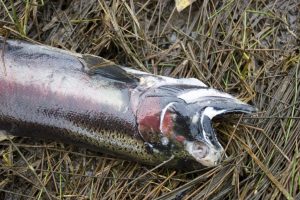 We have a simple choice to make. We must either tend our house or lose it. Together we have the ability to sew a quilt of towns, forests, farms, and wildlands shaped to our unique geography and climate. We can choose to invest in a deep and persistent abundance. This work will not be led by government panels or business round-tables. This labor will not be accomplished in a blue-ribbon report. We will have to restore the productivity of the land with our hands, one valley at a time, stream by stream, community by community. Rural landowners cannot do this work alone, and talk is cheap. We will need to build a relationship between our cities and the land that shows how we honor future generations and rural stewardship. We can catch the rain, store it in soils and wetlands, cultivate resilient farms, tend the forests, and restore our natural wealth.
We have a simple choice to make. We must either tend our house or lose it. Together we have the ability to sew a quilt of towns, forests, farms, and wildlands shaped to our unique geography and climate. We can choose to invest in a deep and persistent abundance. This work will not be led by government panels or business round-tables. This labor will not be accomplished in a blue-ribbon report. We will have to restore the productivity of the land with our hands, one valley at a time, stream by stream, community by community. Rural landowners cannot do this work alone, and talk is cheap. We will need to build a relationship between our cities and the land that shows how we honor future generations and rural stewardship. We can catch the rain, store it in soils and wetlands, cultivate resilient farms, tend the forests, and restore our natural wealth.
We are so fortunate because we have everything we need. We have more tools and energy than just about anywhere on earth. Our forests are solar-powered and practically grow themselves. Evolution is at work and on our side. There are lands that need repair, and stewards that need our help. All we need is the clarity to stop, learn the land, and get to work. Only through our labor can we shape the future of our home. We only lack the social systems able to do the work. Why are we waiting for someone else to solve this problem?
Restoration Camping lets us step away from our habits, go into the watershed, learn skills, and work with our neighbors. The land needs tending. We will gather around the campfire, tells stories and study, learn and teach the art and skills of stewardship. We’ve been camping nomads for 300,000 years. If we have food, water and shelter we can make a home. There are endless forests, streams, prairies, and wetlands that will benefit from our work. Who knows what we’ll learn along the trail.
The trail that will lead us to ecosystem health is not well marked. Universities and experts will not plant the trees.
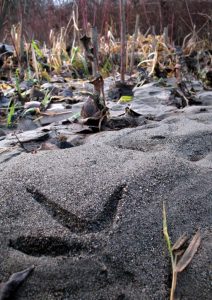 The Ecosystem Guild is a vision of that social system, and how we organize for restoration camping. This modern guild of ours works with both digital and analog tools. We build communities, skills, and wisdom by doing the work. We aim to be a healing edge to the wounds of colonization. There is no other way. The trail that will lead us to ecosystem health is not well marked. Universities and experts will not plant the trees. Bureaucrats and board members will not venture far from their comforts. When we know where we are going, our institutions will follow. Free agency is our only sure birthright.
The Ecosystem Guild is a vision of that social system, and how we organize for restoration camping. This modern guild of ours works with both digital and analog tools. We build communities, skills, and wisdom by doing the work. We aim to be a healing edge to the wounds of colonization. There is no other way. The trail that will lead us to ecosystem health is not well marked. Universities and experts will not plant the trees. Bureaucrats and board members will not venture far from their comforts. When we know where we are going, our institutions will follow. Free agency is our only sure birthright.
In six generations we’ve inflicted nine wounds. This accounting helps us understand the nature of our work:
- First People – after encouraging epidemics of disease, we rolled over a devastated population, abused their children in forced reeducation camps and systematically destroyed their natural sustenance. The Salish coast is a global hot spot of language loss. Just this year, our officials argued that our promise to let the tribes fish doesn’t require us to protect the fish. And still tribal communities survive, organize and resist.
 Beaver – on the eve of colonization, the retreating Hudson Bay Company and the arriving settlers set a new standard for complete fur extraction. The 5,000 year old beaver project to capture and store the rain was destroyed. Having lost their headwater wetlands, our streams have suffered ever since. We continue to undermine and kill beaver, but every night they slip into the water and work to reclaim their ancestral lands.
Beaver – on the eve of colonization, the retreating Hudson Bay Company and the arriving settlers set a new standard for complete fur extraction. The 5,000 year old beaver project to capture and store the rain was destroyed. Having lost their headwater wetlands, our streams have suffered ever since. We continue to undermine and kill beaver, but every night they slip into the water and work to reclaim their ancestral lands.- Forests – Our first great effort was to convert the living capital of the forest into money. Sometimes we just burned the logs to get down to soil. The lowland ancient forests are now gone, except for a few museum pieces, and we have converted our hills into wood fiber factories on a 40 to 80 year rotations to fuel a global waste stream. Yet even when we cut the hills to the bone, the forests regrow.
- Fish – The annual return of anadromous fish was a vast fleshy gift from the ocean for 5,000 years. We proclaimed it inexhaustible as cannery fleets carved into the populations. We blocked the streams, scoured the spawning gravel, or clogged them with silt. Our genetic hatchery experiments crippled the wild bloodlines. With populations at perhaps five percent of historical numbers (we never really measured) some runs of the great Chinook hogs hang on by a few hundred individuals. And still they return in memory of their lost home.
- Rivers – Every one of our great rivers formed a fertile plain full of peat and beaver and the greatest forests ever known. We drained the swamps, killed the beaver, burned and pulled out the stumps like great teeth, and bound the rivers into a single vein. But even in this enforced disorder, the rivers remain untamed. Climate change brings atmospheric floods of rain on snow that eat at levees, and retreating glaciers fill our channels with gravel. The rivers will not be confined.
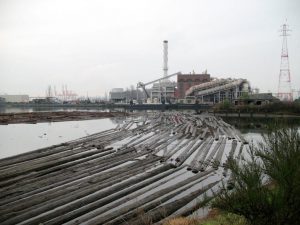 Poisons – When we invented world war we redoubled our carnage, now aided by oil, industrial chemicals, and the magic of industrial nitrogen fixation. We almost destroyed native oyster populations with sulfate liquor, and left a legacy of toxic sediments and soils laced with polycyclic aromatic hydrocarbons, polychlorinated biphenyls, dixons, lead, arsenic, and mercury. The flow of nitrogen from the sky now exceeds all of nature, and flows through or feces to the sea into algae blooms that suffocate life.
Poisons – When we invented world war we redoubled our carnage, now aided by oil, industrial chemicals, and the magic of industrial nitrogen fixation. We almost destroyed native oyster populations with sulfate liquor, and left a legacy of toxic sediments and soils laced with polycyclic aromatic hydrocarbons, polychlorinated biphenyls, dixons, lead, arsenic, and mercury. The flow of nitrogen from the sky now exceeds all of nature, and flows through or feces to the sea into algae blooms that suffocate life.- Dehydration – With the forest duff gone and our population surging we build roofs, driveways, and roads, and compacted soils into lawns. We build ditches, sewers and drains to dry out our oceanic rainforest, and then we pump water from the ground for vanity gardens. Now we complain about floods in winter and droughts in summer. And every autumn, the rain returns to give us another chance.
- More Poisons – Now as we pour and pump our effluent into the streams, rivers, and seas, and have begun a new experiment in poisoning. Our manipulation of chemicals has become more sophisticated and pervasive. We have unleashed a brew of pesticides, fire retardants, combustion excreta, and pharmaceuticals. Our scientists have no idea what we are doing, but coho salmon are dying in our streams with their bellies full of eggs.
- Global Consumption – Our boundless materialism now drives global resource extraction. Each of us pays corporate agents to search the globe for the resources we cannot produce for ourselves. Some trade is honest and fiar, but our supply lines leverages tyranny to harm watersheds we will never see. And despite centuries of injustice, people across the globe seek land reform and fair trade that honors our dignity.
We need to recount these wounds to understand our purpose. They are deeply tied to our way of life. When we catch the rain and deepen the soil, we can recovery productivity and biodiversity. We can make room for rivers and beaver in ways that also serve our well being. On our dry-lands, we can relearn the creative use of fire. We can rebuild just and reciprocal relationships to supply our needs, and produce our own offerings with respect for the web of life. Can we learn how to live with wolves, bears and cougars? With water and biodiversity we can live here in abundance forever, and help our neighbors do the same. Camping is about remembering how to survive, and restoration is about learning how to live.
When the talk is done, the work of restoring of soils, forests, and biodiversity is done parcel by parcel, acre by acre.
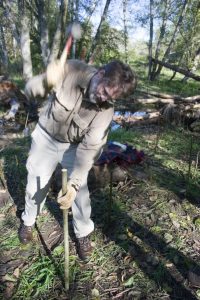 While reconstructing floodplains and cleaning waste sites are challenges for our governments and engineers using hydraulic models and large yellow machines, there is a vast amount of work that simply depend on you and me. When the talk is done, the work of restoring soils, forests, and biodiversity is done parcel by parcel, acre by acre. It can be done on the cheap and with our hands but it will take many hands and many minds. It can only emerge from a culture of stewardship, and such a culture requires that we commit to places, and build knowledge through work. We will be paid back forever. Both the living systems we rekindle, and the knowledge required, are a kind of capital that is owned only by a people committed to their land. It will require new words and concepts, and a deep understanding of specific places that comes from living there. I would like to do that work.
While reconstructing floodplains and cleaning waste sites are challenges for our governments and engineers using hydraulic models and large yellow machines, there is a vast amount of work that simply depend on you and me. When the talk is done, the work of restoring soils, forests, and biodiversity is done parcel by parcel, acre by acre. It can be done on the cheap and with our hands but it will take many hands and many minds. It can only emerge from a culture of stewardship, and such a culture requires that we commit to places, and build knowledge through work. We will be paid back forever. Both the living systems we rekindle, and the knowledge required, are a kind of capital that is owned only by a people committed to their land. It will require new words and concepts, and a deep understanding of specific places that comes from living there. I would like to do that work.
We can shift from being colonizers, to becoming stewards. We can become intelligent tenders of plants and soils. The only other path leads to the greatest ecological collapse in history, followed by a technological scramble for survival with no path of return. I’d rather go camping.
Read about three simple goals.
